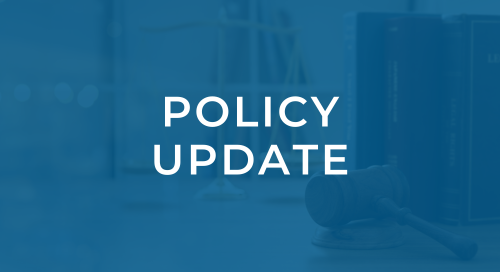
The 2022 Physician Fee Schedule (PFS) politely dropped last night a whole 36 hours before one of our team member’s vacation. Here are the highlights. We are hosting a webinar on first
impressions of the key proposed changes tonight (Wednesday the 14th) at 7:00 pm EST (click
here to register). There will be a recording (we know this is scheduled last minute) and we will be
following up with deep dives into the various sections of the proposed rule over the coming
weeks.
Physician Payment Updates
Each year, a conversion factor converts the relative value units (RVUs) to dollars. This year the conversion factor is decreasing 3.75%, which reduces the payments by 3.75% compared to 2021. 2021 saw a significant increase in the payment of E&M services of over 10% resulting in an overall increase in primary care revenue of over 4%. This increase had to be budget neutral, so payment for procedures took a cut to pay for the 10% E&M service increase. Due to the pandemic, Congress did a one-year increase of 3.75% for everyone as a stimulus. That has now expired, so while your 2022 payments will be less than 2021, the payments will still be significantly more than your 2020 and 2019 payments.
Medicare Shared Savings Program
- If you are an avid reader, you may recall that CMS has proposed moving to an All Payer, All Patient reporting system for quality. This would be quite challenging to pull off as an ACO, and arguably not particularly accurate. CMS underestimated the challenges and, in response to advocacy by Aledade and our fellow ACO travelers, this has been postponed until 2024.
- Two other issues that Aledade leads the way on (search Aledade in the regulation and you
- will find us mentioned by name) are also discussed in the proposed regulation:
- Rural Glitch – If CMS removes our patients from our regional trends (inflation) it creates the same rewards for the same performance, no matter where an ACO is. CMS’s current policy gives different ACO’s different rewards, even if the performance is the same. CMS outlines the problem but did not propose a single solution. Rather, it kicked the can to us in the public to build consensus around one of their proposed options. Challenge accepted.
- Risk Score Caps – CMS wrongly assumed that regional risk scores would not vary much over time and, therefore, had different policies for the region than for the ACO. Like rural glitch, CMS has acknowledged the problem but is looking for the public to build consensus on a solution.
- There are several technical fixes around attribution, ACO paperwork, and repayment mechanisms that we will cover in detail in the weeks ahead.
Telehealth
- Current flexibilities are proposed to be extended through 2023.
- This is a year longer than expected and will provide time to collect plenty of data to determine the future of telehealth.
- We could see the extension through 2023 challenged on legal grounds, but this is unlikely. Even if this does happen, we will definitely see telehealth expanded through 2022.
- Mental health telehealth will be made permanent.
- Congress passed provisions to make permanent telehealth for mental health.
- Site restrictions (home is allowed), geographic restrictions (beneficiary can live anywhere in the country), and the restrictions on FQHCs/RHCs will all be removed.
- The patient must have had an in-person visit within 6 months of the telehealth visit.
- The health care provider must have the capability for audio/video, but if it’s documented that there was a technical problem or other limitation on the patient side, then audio is acceptable.
- We will be reviewing these provisions in greater detail, as they now have inertia and could carry forward into physical health.
Appropriate Use Criteria Program Penalties Delayed till 2023
The Appropriate Use Criteria (AUC) program penalty phase is delayed to 2023 (thank you global
pandemic). This program is very confusing to implement. CMS should take the extra time to think about how it can be simplified. We would say eliminated, but it is required by law.
Chronic Care Management
Chronic care management (CCM) has quietly become a fully-funded benefit for Medicare
beneficiaries over the last 5 years. This year the codes are all converted from the remaining G
codes to AMA CPT codes, and the AMA payment levels are adopted. Essentially, a new benefit
has been added to Medicare without much fanfare. Talk to your field team about how best to
leverage CCM in your ACO work. We also want to hear from you on how the policies can be better. Number one on our hit list is removing deductible and copay requirements, as the frequency of the service makes those difficult. Let us know what else outside of payment, would make this a better tool to care for your patients.
CMS Links
If this caught your attention and you have follow-up questions, remember to join us for a webinar
detailing the key proposed measures of the PFS tonight at 7:00 pm EST (register here). We will be spending the next couple of weeks getting deep in the weeds of the 2022 PFS. We are looking
forward to discussing with you and shaping our comment letter so that the final 2022 PFS best
reflects your needs.
